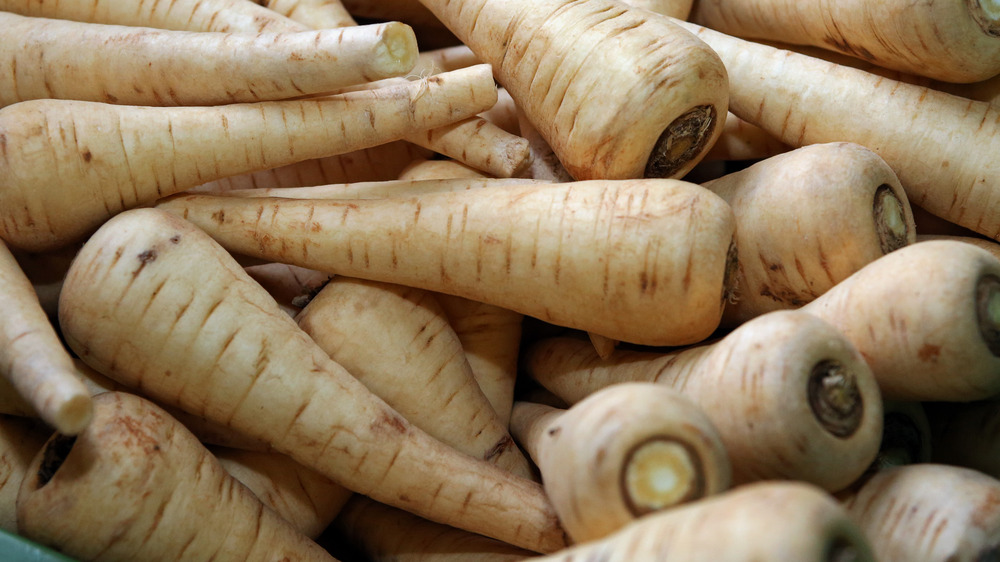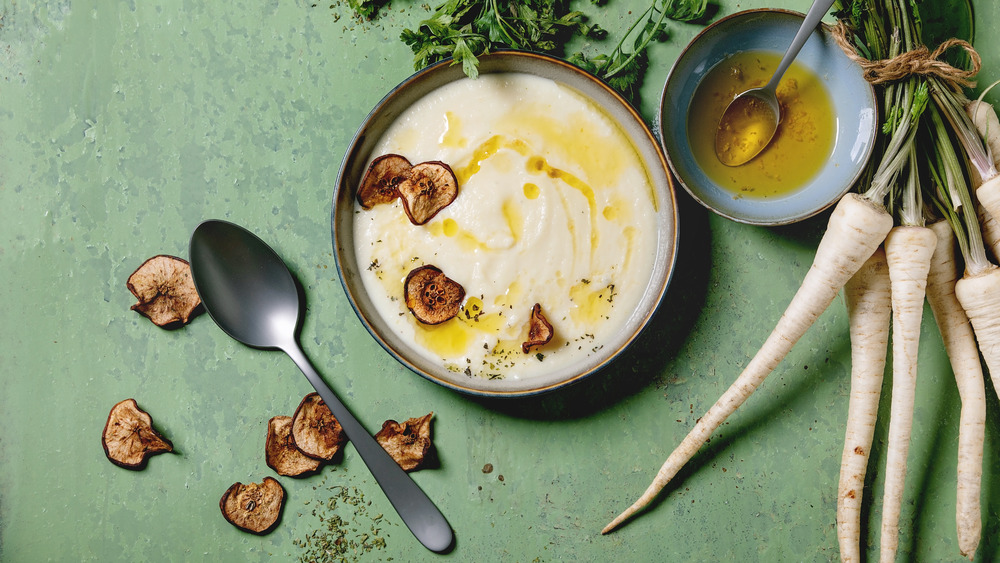You Should Start Eating More Parsnips. Here's Why
No, they're not pale carrots devoid of beta-carotene. They're their own thing: parsnips. Botanically, the root vegetable is a member of the parsley family, which includes carrots, celery, and fennel, among others (via Britannica). According to Harvesting History, parsnips have been around for centuries, originating from Eurasia in ancient times. While on the outside they look like white carrots, if you were to blind taste the two, you would be quick to identify them. Parsnips have an earthier, nutty taste, and are sweeter than carrots. Indeed, Saveur notes that before sugar cane made its way to Europe, this versatile vegetable was used as a sweetener. Besides being able to sub in for sugar, parsnips have a host of other qualities that make them the ideal root vegetable to be adding to your rotation.
Fuss-free in the garden, parsnips thrive in cold weather and are mostly harvested in late fall and winter, reports The Spruce Eats. The outlet warns to proceed with caution when harvesting the vegetable, because their leaves can cause a significant skin irritation.
Whether you're picking them from your garden or grabbing a bunch at the supermarket, make sure to avoid limp parsnips and go for those with no black spots or shriveled tips (via The Spruce Eats). If they are fresh, they can be stored for a few weeks loosely wrapped in the fridge, or wherever you keep your root vegetables.
How should you prepare them?
While raw parsnips are edible, the sweetness really comes through when they are cooked. The Spruce Eats recommends peeling them to avoid any bitter flavors. Once prepped, you can roast, boil, fry, or steam them, depending on the dish. Parsnips contain less starch than potatoes, so they don't get as mushy when cooked (via The Spruce Eats). They make a great addition to a soup, stew, or wherever you'd use carrots. For an extra-delicious alternative to potatoes, turn them into fries or chips, or puree them as a side for your next pot roast. Since they are naturally sweet, they can also be grated and used in baking.
Besides the variety of dishes you can cook up with this multifaceted vegetable, they are also incredibly nutritious. They contain high amounts of soluble and insoluble fiber, which are beneficial for heart health, blood sugar regulation, and digestion, according to Healthline, which further notes that parsnips are also low in fat and are suitable for weight loss diets.
Don't be fooled by their pale appearance. Parsnips are high in antioxidants, vitamins C and K, manganese, folate and potassium (via Healthline). Organic Facts mentions that parsnips are aphrodisiacs, which makes sense, given that potassium is a vasodilator. They also aid in producing sex hormones. Besides spicing up your sex life, parsnips are used in herbal medicine for their host of properties.
Whether you eat them for their delicious flavor and versatility or to take advantage of their health benefits, parsnips should be a regular on your table.

